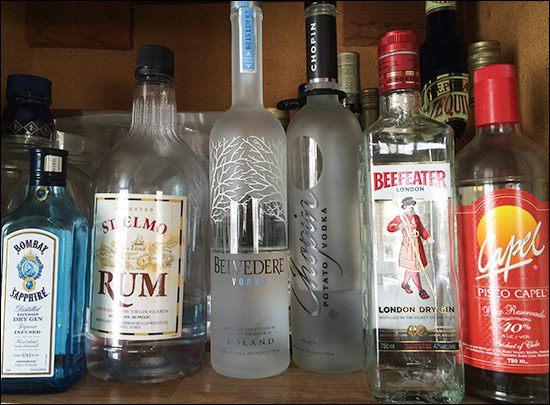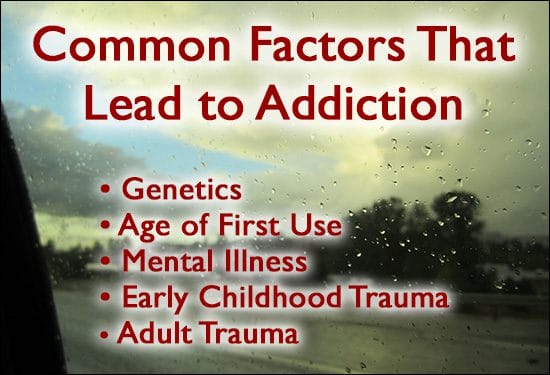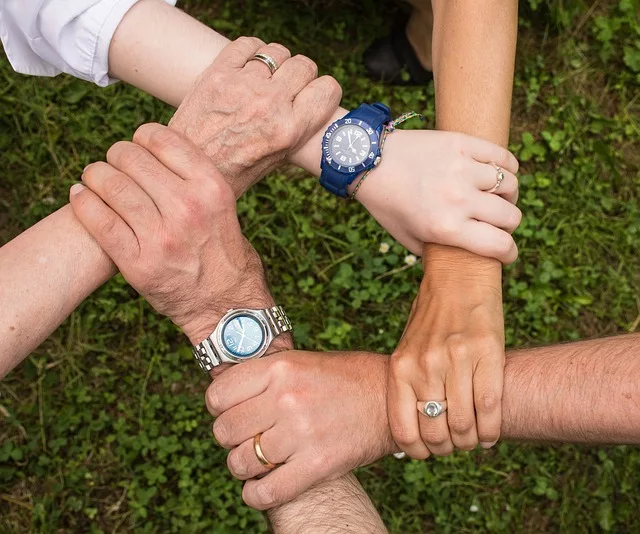Addiction is a painful disease, and also a confusing one. Family and friends of an addict wonder why their loved one continues to abuse drugs and alcohol when it’s clear they’re destroying their life.
“Why don’t they just stop?” is a question constantly asked.
In many cases, the addict is asking themselves the very same question. The truth is, anyone can become a drug addict or alcoholic, but some are more vulnerable than others.
The greater question is, “why do people get addicted to drugs and alcohol?“
The science of addiction has come a long way in the last 50 years. Alcoholics and substance abusers were once thought to be weak-willed individuals with no moral center.
We now know addiction is a chronic and complex brain disease that alters the brain’s chemistry in such a way that it fosters compulsive drug seeking and relapsing behaviors, despite common sense or the will to live otherwise.
In recent years, research has shown that there are several factors that make some people more vulnerable than others as it relates to addiction.
What are 6 of the Most Common Factors That Lead to Addiction?
1. Genetics
It has been shown over and over that alcoholism and drug abuse runs in families.
Genes provide information on how our bodies respond at a cellular level. 99 percent of our genes are the same, while the 1 percent that are different account for things like hair and eye color, height, and even the potential for heart disease, diabetes or addiction to drugs and alcohol.
There is also evidence that the presence of specific genes, involved in alcohol metabolism and the transmission of nerve cell signals, increases the risk of becoming dependent on drugs or alcohol.
2. Social Environment
Social interactions and environmental circumstances fire up the brain’s reward pathways.
As with most things, this can have both positive and negative affects on different individuals.
In cases where people live or attend school, or work in environments where alcohol and drugs are widely used as a way to bond, it’s been shown they’re more likely to fall into patterns of substance abuse and addiction.
3. Age of First Use
Children who begin using alcohol or drugs before the age of 13 are 38% more likely to develop the disease of addiction.
Even moderate levels of abuse can damage their brains, which are generally not fully matured until the age of 25.
4. Mental Illness
Half of drug abusers and about a third of alcoholics are also coping with a mental illness, such as depression or anxiety.
Likewise, half of those living with a severe mental illness, like bipolar disorder or schizophrenia, have substance abuse issues.
The existence of both mental illness and addiction is very common and referred to as dual diagnosis or co-occurring disorders.
5. Early Childhood Trauma
Neglect, physical and emotional abandonment, sexual, physical and psychological abuse are all examples of trauma.
Scientists know that this kind of distress actually alters the brain chemistry of children and makes them more vulnerable to addiction later in life.
6. Adult Trauma
This is similar to childhood trauma though it occurs later in life.
Those who suffer the loss of a loved one, such as a child, friend or spouse, or develop post-traumatic stress disorder (PTSD) as a result of combat experience, a car wreck or sexual assault have a propensity to self-medicate using drugs and alcohol.
This often leads to dependency and addiction.
Simply understanding the causes of addiction will not alleviate it. However, being aware of the underlying reasons for the disease helps those seeking recovery and their loved ones to identify circumstances and events that have brought the illness on or out of remission.
In the United States, one out of every 10 adults is addicted to drugs and alcohol. That’s nearly 24 million people, roughly the population of Texas.
Reducing the stigma associated with addiction and approaching this public health issue with compassion can make all the difference for those considering treatment.
Related:
Early Education on Alcoholism and Addiction
Vitamin B1 May Ward Off Alcoholic Brain Disease







